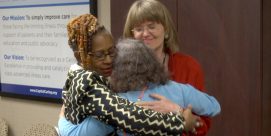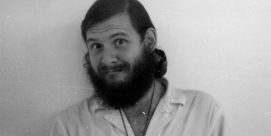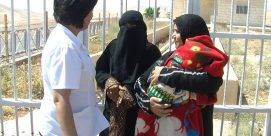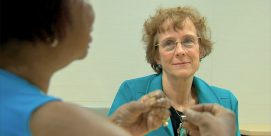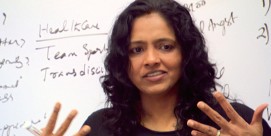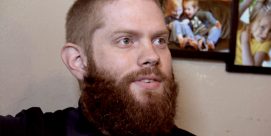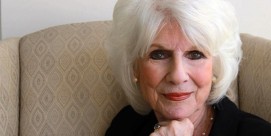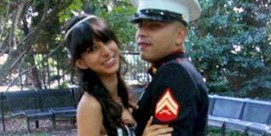Topic: Health and Medicine
“When we sing to a patient, we are sending them love, we are wishing them well on their journey, we are saying we’re all in this together…We are learning from them how to do this thing called dying,” says Sarah Stott, a member of the Threshold Choir in Washington, DC.
More“There’s so much to learn about ethical behavior in the Bhagavad Gita, the Talmud, all of the Old Testament, the New Testament…Islam,” says physician, philanthropist, former hippie, and Silicon Valley guru Larry Brilliant. His memoir is called Sometimes Brilliant: The Impossible Adventure of a Spiritual Seeker and Visionary Physician Who Helped Conquer the Worst Disease in History.
MoreThe majority of patients are Muslim, and the majority of doctors and nurses are Christian at this hospital near the Church of the Nativity in Bethlehem. “The aim is to help people—to help the poor, to help the sick, Muslim, Christian, or whatever… We don’t refuse anybody,” says Dr. Salim Kunkr of Holy Family Hospital. More
“This is a silent revolution that’s transformed health care so that every person can have their inner life, their spirituality addressed as an integral part of their care,” says Dr. Christina Puchalski, founder and director of the George Washington University Medical School’s Institute for Spirituality & Health. More
“I am very, very spiritual but I am not religious. I believe in the existence of God, and before I start an operation I pray to God, and after the surgery I again pray to him for taking me through the operation.” More
“We really need to free dying from the hospital and take it back into the community where it belongs,” said Dr. VJ Periyakoil, director of palliative care education and training at Stanford University School of Medicine.
More“At the end of the day I’m not depending on insurance, and I’m not depending ultimately on Samaritan [Ministries]. I’m depending on God. Samaritan is something I’m actually choosing because I believe it honors God,” says Jonathan Velez, a member of a Christian health sharing program. More
“People need to talk about this issue,” says Diane Rehm, author of On My Own. “Doctors need to be taught about this issue. The whole idea of doctors being taught about helping to keep people alive but not being taught how to listen to those who are ready to die—that seems to me sad and misguided.” More
“It’s morally urgent just as we send citizen soldiers to war that we bring citizen soldiers home,” says Georgetown University philosophy professor Nancy Sherman. Despite the moral hurt and guilt combatants feel, civilian society can help them recover “a sense of goodness about yourself, to empathize with the good part of you.” More
“Cyberspace just gives us a new place to grieve, a new place to create rituals, a new place to memorialize the death of someone we care about,” says Carla Sofka, professor of social work at Siena College and co-editor of a book on death and grief in an online universe. More

